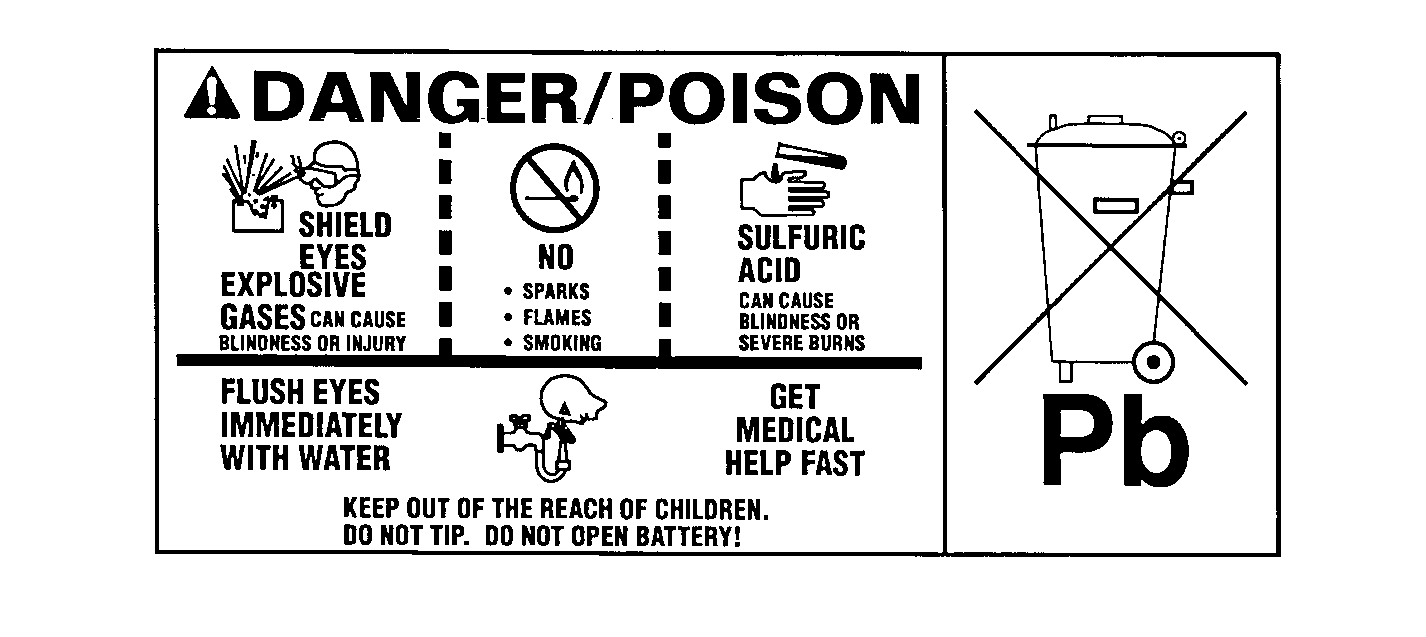Caution: Batteries produce explosive gases, contain corrosive acid, and supply levels
of electrical current high enough to cause burns. Therefore, to reduce the risk of
personal injury when working near a battery:
• Always shield your eyes and avoid leaning over the battery whenever possible. • Do not expose the battery to open flames or sparks. • Do not allow the battery electrolyte to contact the eyes or the skin.
Flush immediately and thoroughly any contacted areas with water and get medical help. • Follow each step of the jump starting procedure in order. • Treat both the booster and the discharged batteries carefully when using
the jumper cables.

The maintenance free battery is standard. There are no vent plugs in the cover. The battery is completely sealed except for 2 small vent holes in the side. These vent holes allow the small amount of gas that is produced in the battery to escape.
The battery has three functions as a major source of energy:
| • | Engine cranking |
| • | Voltage stabilizer |
| • | Alternate source of energy with generator overload. |
The battery specification label (example below) contains information about the following:
| • | The test ratings |
| • | The original equipment catalog number |
| • | The recommended replacement model number |

Battery Ratings
A battery has 2 ratings:
| • | Reserve capacity |
| • | Cold cranking amperage |
When a battery is replaced use a battery with similar ratings. Refer to the battery specification label on the original battery or refer to Battery Usage .
Reserve Capacity
Reserve capacity is the amount of time in minutes it takes a fully charged battery, being discharged at a constant rate of 25 amperes and a constant temperature of 27°C (80°F) to reach a terminal voltage of 10.5 V. Refer to Battery Usage for the reserve capacity rating of the original equipment battery.
Cold Cranking Amperage
The cold cranking amperage is an indication of the ability of the battery to crank the engine at cold temperatures. The cold cranking amperage rating is the minimum amperage the battery must maintain for 30 seconds at -18°C (0°F) while maintaining at least 7.2 volts. Refer to Battery Usage for the cold cranking amperage rating for this vehicle.
Circuit Description
The battery positive terminal supplies B+ voltage to the under hood fuse block and the rear fuse block. The under hood fuse block provides a cable connection for the generator and a cable connection for the starter.
The battery negative terminal is connected to chassis ground G305 and supplies ground for the AD converter in the DIM.
